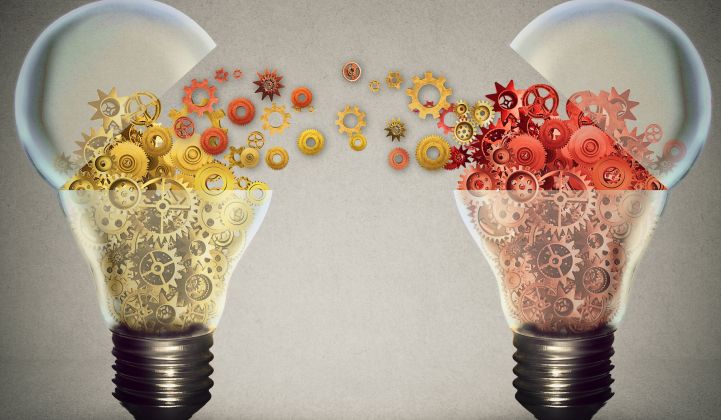Energy sector investments in big data and artificial intelligence have ballooned by a factor of 10 this year, according to a new report on the sector.
The study, by accountancy firm BDO, found mergers and acquisitions involving energy companies and AI startups had soared in average value from around $500 million in the first quarter of 2017 to $3.5 billion in the second quarter.
The number of deals also went up, rising from six to eight. The 14 deals in the first half of this year compares to 15 in the whole of 2016. “We are witnessing the early stages of what will become an M&A trend for years to come,” said BDO.
The firm attributed much of this activity to the need for improved analytics to manage intermittent renewable generation.
“In these uncertain times, energy businesses adapt their strategy and look to artificial intelligence and big data to improve energy forecasts,” states the report.
As an example, in July, an energy sector consulting firm called Willdan Group paid $30 million for Integral Analytics, a data analytics and software company.
“IA’s software solutions are designed to solve problems arising from the transformation of an electric grid facing increasing growth in distributed energy resources, such as solar and electric vehicles,” noted Willdan in a press release.
Another example was smart meter maker Itron’s acquisition of demand response provider Comverge in May for $100 million. As reported in GTM, the purchase gave Itron added analytical firepower to add to its existing software suite.
Not all energy-sector analytics acquisitions conform to this picture, however. One of the deals listed by BDO was Castrol’s purchase of Romax Technology in February.
Although the acquisition gave Castrol a foothold in the renewable energy market, the motivation for the buyout was allowing the oil company better access to Romax’s wind turbine gearbox lubrication customers.
Utilities are leading the acquisition charge. According to GTM Research, utilities have spent nearly $3 billion on grid edge startups, many with sophisticated software and analytical capabilities.
In July, for instance, the genset rental giant Aggreko paid $52 million for Younicos and its Y.Q software platform.
And in May, Wartsila, a marine and power plant specialist, bought Greensmith, which had made its name in energy storage optimization and integration software.
Other similar deals include Enel’s acquisitions of EnerNOC and Demand Energy in June and January, and Doosan’s purchase of 1Energy Systems in July 2016.
The French energy giant EDF, meanwhile, pulled off a similar deal in reverse last year when it bought the services company Groom Energy Solutions in order to get more use out of an analytics platform belonging to one of its other subsidiaries, Dalkia.
Clearly, energy companies are increasingly looking to add greater software intelligence to their operations, said report author Jakob Sand, BDO’s head of corporate finance in Denmark.
“I would believe that most of the large energy companies, including oil majors such as Exxon, Shell, BP and Chevron, are on the lookout for opportunities that can enhance their operations through data and AI or machine learning," he said.
Besides responding to a need for more efficient and flexible operations, some of the interest in M&A could be driven by competitive concerns, BDO said. The firm’s report said 2,595 clean energy hopefuls were among the companies tracked on the AngelList online startup database.
Many of these “are already bringing their products and services to market,” BDO said. “It leads to a situation where many large companies may have to resort to M&A to avoid losing market shares to the new kids on the block.”
With a growing number of startups looking to commercialize blockchain-based energy trading concepts, blockchain providers could become the next big focus for corporate M&A, said BDO. There have already been several partnerships in this area.
In June, for example, E.ON and Enel traded energy over a blockchain-based peer-to-peer network provided by IT specialist Ponton.
And Conjoule, a blockchain platform developer hatched in Innogy’s Innovation Hub in 2015, pulled in $5.3 million in funding from Tokyo Electric Power Company and others in July. Expect more such deals to come.




